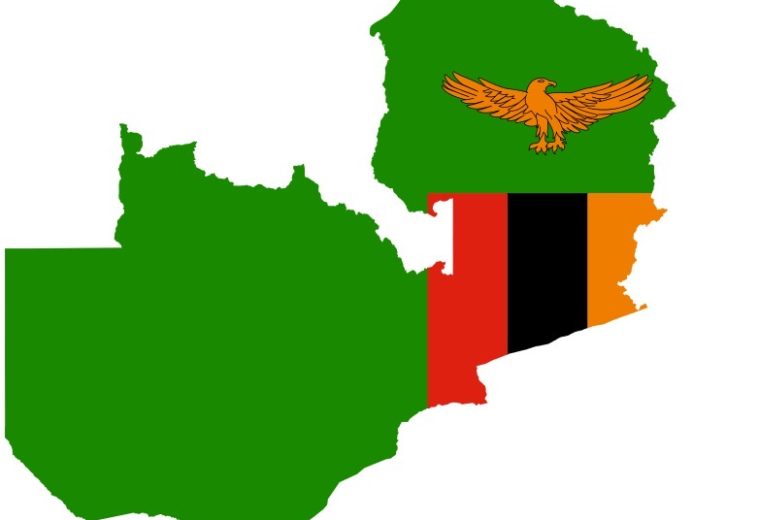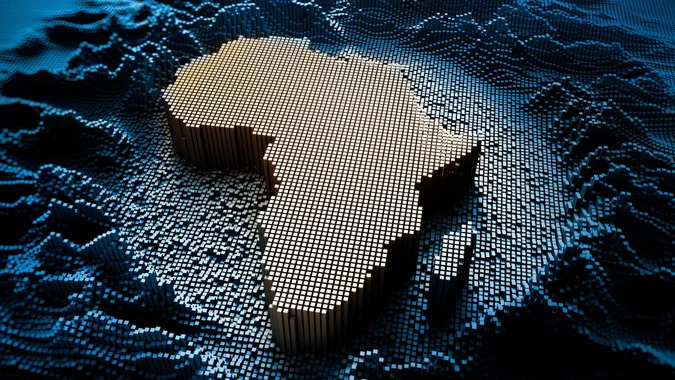The Akufo-Addo administration has been credited with significant accomplishments in Ghana. The administration’s introduction of numerous projects and changes shows an emphasis on modernization, accessibility, and the enhancement of public services and the lives of its citizens. This article reviews the chronicles of Akufo-Addo’s economic and political milestones as president of Ghana.
BIOGRAPHY OF NANA AKUFFO ADDO
Nana Addo Dankwa Akufo-Addo, born on March 29, 1944, in Accra, Gold Coast, now Ghana, is a Ghanaian lawyer and politician who became president of Ghana in January 2017. Akufo-Addo is the son of Edward and Adeline Akufo-Addo. He received his primary education in Accra, first attending the Government Boys School and then Rowe Road School. Akufo-Addo went on to the United Kingdom for his secondary education, studying at Lancing College between 1957 and 1661. He came back home to Ghana and, in 1964, attended the University of Ghana, graduating with a bachelor’s degree in economics in 1967. Akufo-Addo returned to the U.K. to study law and was called to the bar in England, specifically the Middle Temple, in 1971 and in Ghana in 1975. He worked in France at the Paris office of the U.S. law firm Coudert Brothers from 1971 to 1975. He then returned to Ghana and, from 1975 to 1979, worked in the chambers of U.V. Campbell. In 1979, he cofounded the law firm Akufo-Addo, Prempeh & Co.
ECONOMIC MILESTONE
Under the administration of the Akufo-Addo government, Ghana became the fastest-growing economy in the world. Also, Ghana’s GDP by 2019 was the 9th largest in Africa. In 2018, Akuffo Addo introduced the 7-year Coordinated Programme of Economic and Social Development Policies, which is expected to create jobs for the country. According to the president, the policies are founded on “five pillars of growth and development, namely revitalising the economy, transforming agriculture and industry, revamping economic and social infrastructure, strengthening social protection and inclusion, and reforming the delivery system of public services institutions.
Digitization
The introduction of a national ID card programme, mobile money compatibility, the all-encompassing QR code payment system, and the digital property address system are among the major accomplishments. A number of electronic services have been introduced, including the ability to purchase a passport and a driver’s licence, demonstrating efforts to increase efficiency and lessen corruption.
Paperless port system
In September 2017, Ghana implemented a paperless port system, drastically reducing goods clearing time from a week to four hours and leading to a 3.9% increase in import revenue by 2019. However, on June 1, 2020, the system was replaced by the Integrated Customs Management System (ICUMS), causing concern among stakeholders like the Ghana Institute of Freight Forwarders. The government defended this change, citing the ICUMS’ revenue generation of GH¢10.5 billion from June to December 2020, surpassing the previous system, and justifying its implementation.
Health and infrastructure
On January 28, 2020, the president delivered 307 ambulances for the 275 constituencies in Ghana, with one ambulance per constituency. This stems from the presidential campaign promise during the 2016 general elections of the initiative, one constituency, one ambulance.
In 2020, the government partnered with the private sector to build the Ghana Infectious Disease Centre, which is Ghana’s first infectious disease center. In January 2020, the country adopted the 112 general emergency numbers to merge all emergency numbers. The president commenced the construction of the Pokuase Interchange in partnership with the African Development Bank. The interchange is Africa’s second four-level stack interchange and the first in West Africa. The project was initiated as a 3-tier interchange during the Mahama administration but was changed to a 4-tier interchange by the Akufo-Addo government.
Also, the development of medical drone delivery services and improvements in technology for public services show a dedication to tackling healthcare and infrastructure issues.
One district, one factory
Moreover, the government has made efforts to boost economic growth with initiatives like “One District, One Factory”. One district, one factory was a policy aimed at providing jobs through industrialization. The policy was part of the government manifesto to provide an industry and factory within every district in Ghana.
From June to July 2020, the government under Akuffo Addo stated that, across the country, 76 factories were in operation. Due to the policy, 28 factories are newly built, while 48 are existing factories under the implementation of expansion and revival, all in the quest to bring growth to the economy.
Free SHS
The Free Senior High School (SHS) policy by President Nana Addo Dankwa Akufo-Addo is an initiative that was unveiled in 2017. It sought to eliminate financial barriers for students by granting free access to second-cycle education as well as demonstrate a focus on education and skill development. Around 100,000 junior high school (JHS) students were unable to transfer to senior high school (SHS) prior to its implementation due to financial restrictions. The policy had a noticeable impact, as evidenced by the academic year 2017–18’s record.
|
|
|
|
|
|
breaking the enrollment of over 470,000 students. The free SHS policy has currently benefited over 1.6 million young people. Notably, the policy’s significant investment improved WASSCE results noticeably, with the 2022 results being the best in eight years. This development is in line with UN Sustainable Development Goal 4, which calls for ensuring high-quality primary and secondary education.
POLITICAL SUCCESS
Political Activism.
Nana Akufo-Addo was also engaged in political activism. In the late 1970s, he served as general secretary of the People’s Movement for Freedom and Justice (PMFJ), a group that opposed the plans of the military government in place at the time. In 1992, he joined the nascent New Patriotic Party (NPP) and served as a Member of Parliament under the party’s banner for three terms (1996–2008). Under former President John Agyekum Kufuor, Akufo-Addo served as attorney general and minister of justice from 2001 until 2003. That year he became foreign minister, a position he held until 2007, when he resigned in order to stand in the contest to be the NPP’s flag bearer in the 2008 presidential election, in which he was elected as the party’s candidate.
Presidential Journey
In the December 7, 2008, Ghanaian presidential election, Akufo-Addo won the first round of voting with more than 49 percent of the total vote. However, as he did not get the required 50 percent plus one, he and his closet contender, John Evans Atta Mills of the National Democratic Congress (NDC), advanced to a second round, held on December 28. This time, Akufo-Addo was narrowly defeated by Mills, taking 49.77 percent of the total vote to Mills’ 50.23 percent.
Akufo-Addo stood for president in the December 7, 2012, election again as the NPP’s candidate. He faced the NDC’sJohn Mahama, who had succeeded to the presidency earlier that year after Mills’ unexpected death, and six other contenders. Mahama emerged as the winner with 50.7 percent, with Akufo-Addo coming in a very close second with 47.7 percent. However, Akufo-Addo and the NPP lodged allegations of electoral fraud and challenged the results at the Supreme Court. After several tense months, in August 2013, the Court upheld Mahama’s victory. Akufo-Addo accepted the outcome and urged his supporters to do the same. He was lauded for his statesmanship and response to the ruling, which helped diffuse tensions in the country. In 2016, Akufo-Addo stood as the NPP presidential candidate for the third time. He again faced former President Mahama as well as five other candidates in the election, which was held on December 7. This time, Akufo-Addo emerged as the winner with about 53.8 percent of the vote, and Mahama, who trailed him with about 44.4 percent, conceded. Nana Akufo-Addo was then inaugurated on January 7, 2017 as president of the Republic of Ghana.
Ghana’s next presidential election was held on December 7, 2020. Akufo-Addo again faced Mahama, as well as 10 other candidates, and was reelected outright in the first round of voting, with slightly more than 51 percent of the vote. Mahama, who closely trailed him with about 47 percent, disputed the election results and filed a petition at the Supreme Court, but it was rejected in March 2021. Meanwhile, Akufo-Addo was sworn in for his second term on January 7, 2021.
The political fortunes and economic success of Nana Akuffo-Addo have been well fought for and well deserved. He has fought a good fight as far as his activism and achieving his political goals are concerned. He has on many occasions shown true statesmanship in his commitment to ensure that the livelihoods of the good people of Ghana get better. As a human rights lawyer, Nana Akuffo-Addo has been a figure to emulate when it comes to upholding the constitution and the rule of law. Although Ghana’s economy grew in the first term of Akufo-Addo, progress was interrupted by the impact of the COVID-19 pandemic in 2020. Nana Akufo-Addo’s achievements highlight the government’s commitment to enhancing various aspects of Ghanaian society, impacting both individuals and the broader economy.


